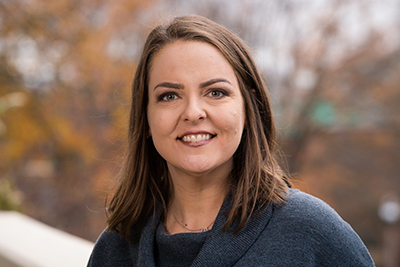Congratulations to VE Cynthia Davis! She has won a Fulbright US Scholar Research Award for the 2023-24 academic year at the University of Marburg in Germany. The grant will support her collation of versions of A Backward Glance for Vol. 27 Life Writings.
CWEWh Editors in the News: Sheila Liming in the New York Times
The Case for Chilling
Sheila Liming, the author of “Hanging Out,” argues that unstructured time is essential to our cultural vitality. Down with calendar invites; long live the bocce league.
Hanging out: It’s a loose social dynamic in which people spend unstructured time together with no set agenda. (Did you need a reminder? Has it been a minute?)
The shortage of idle hangs in our culture is what inspired Sheila Liming, an Edith Wharton scholar, writing professor, professional bagpipe player and devoted socializer, to write “Hanging Out: The Radical Power of Killing Time.” The book conceives of hanging out as a way to reclaim time as something other than a raw ingredient to be converted into productivity. Just as she does in her book, in a recent video interview from Vermont, Professor Liming made a philosophical argument for the chillest of human interactions.
This interview has been edited and condensed.
(read the rest at the link above)
New Publications on Wharton by CWEWh Volume Editors: The Bloomsbury Handbook to Edith Wharton, ed. Emily J. Orlando
https://www.bloomsbury.com/us/bloomsbury-handbook-to-edith-wharton-9781350182943/

The Bloomsbury Handbook to Edith Wharton, ed. Emily J. Orlando, includes essays by several CWEWh editors:
Picturing Edith Wharton’s Modern Woman: Gender and the Social
Construction of Age
Melanie V. Dawson
“Social Order and Individual Appetites”: Edith Wharton’s Short Stories, 1891-1904
Paul J. Ohler
Edith Wharton and Film
Donna M. Campbell
“The Chill Joy of Renunciation”: Feminine Sacrifice in Edith Wharton
and Christina Rossetti
Margaret Jay Jessee
Edith Wharton and Willa Cather: Beyond “Surface Differences”
Julie Olin-Ammentorp
Edith Wharton and the Narratives of Travel and Tourism
Gary Totten
Edith Wharton and Pleasure
Virginia Ricard
Reading the Reader: Edith Wharton’s Library, Digital Methods,
and the Uses of Data
Sheila Liming
The Complete Works of Edith Wharton: Preparing the First
Authoritative Edition
Carol J. Singley, Donna M. Campbell and Frederick Wegener
New Books by CWEWh Volume Editors: Pain and the Aesthetics of US Literary Realism by Cynthia J. Davis

Cynthia Davis is the CWEWh Volume Editor for Volume 27, Life Writings
Pain and the Aesthetics of US Literary Realism
Cynthia J. Davis
- An original study of the vital role that pain plays in US literary realism
- Pays fresh attention to the ongoing cultural pursuit of painlessness as a critical chapter of the literary history of this period
- Highlights the realist aesthetic priorities shared by William Dean Howells, Henry James, Edith Wharton, Mark Twain, and Charles Chesnutt
CWEWh welcomes Robin Peel as editor of Volume 14, The Custom of the Country
CWEWh welcomes Robin Peel as editor of Volume 14, The Custom of the Country.

Robin Peel’s principal research interests have been the relationship between politics, culture and writing in the work of Sylvia Plath, Edith Wharton and Emily Dickinson. He has published monographs and essays on these subjects and organised international conferences and edited two essay collections on wider transatlantic themes. He is currently a Visiting Research Fellow at the University of Plymouth in the UK.
CWEWh welcomes Cynthia Davis as the Volume Editor for Volume 27, Life Writings.
CWEWh welcomes Cynthia Davis as the Volume Editor for Volume 27, Life Writings.

Volume 27: Life Writings
Edited by Cynthia Davis
Cynthia J. Davis (PhD, Duke University) is a Professor of English at the University of South Carolina, where she specializes in U.S. literature and culture from the Civil War to World War II. Her essays have appeared in journals including American Literature, American Literary History, and Arizona Quarterly. In addition to both editing and contributing to essay collections, she has published three single-authored books. Her recent monograph, Pain and the Aesthetics of U.S. Literary Realism, contains a chapter on Edith Wharton and was published by Oxford University Press in January 2022. https://sc.edu/study/colleges_schools/artsandsciences/english_language_and_literature/our_people/directory/davis_cynthia.php
CWEWh welcomes a new Associate Editor, Paul Ohler.
CWEWh welcomes Paul Ohler as a new Associate Editor. He joins Carol Singley (General Editor) and Associate Editors Frederick Wegener and Donna Campbell.
Professor Ohler is the editor for Volume 2: Short Stories I: 1891-1903

Paul Ohler teaches in the Department of English at Kwantlen Polytechnic University. He is the author of Edith Wharton’s Evolutionary Conception: Darwinian Allegory in Her Major Novels (Routledge). His work has appeared in The Edith Wharton Review, English Studies in Canada, and America’s Darwin: Darwinian Theory and U.S. Literary Culture(U of Georgia Press). His most recent publications include an essay in The New Wharton Studies (Cambridge UP), an article on Wharton’s short stories in Studies in American Naturalism, and an essay in The Bloomsbury Handbook to Edith Wharton. He has given numerous talks on Wharton’s fiction at the American Literature Association Conference, the Modern Language Association convention, and other conferences, and he is a past editor of the Edith Wharton Review.
The Complete Works of Edith Wharton Welcomes Margaret Jay Jessee as Editor of Volume 8, The Valley of Decision
The Complete Works of Edith Wharton Welcomes Margaret Jay Jessee as Editor of Volume 8, The Valley of Decision.

Margaret Jay Jessee is Associate Professor of English and Director of English Undergraduate Studies at the University of Alabama at Birmingham. She is the author of Female Physicians in American Literature: Abortion in 19th-Century Literature and Culture (Routledge, 2022). Her work on Wharton has appeared in JML: Journal of Modern Literature, Critical Insights: Edith Wharton (edited by Myrto Drizou, Salem Press, 2017), and The Age of Innocence: New Centennial Essays (edited by Arielle Zibrak, Bloomsbury Press, 2019). She co-directed Edith Wharton’s New York conference with Margaret Toth in 2020. She is currently the secretary of the Edith Wharton Society and will begin her term as Vice President in January 2023.
CWEWh welcomes Julie Olin-Ammentorp as the Volume Editor for Volume 16, War Writings: Fiction.
CWEWh welcomes Julie Olin-Ammentorp as the Volume Editor for Volume 16, War Writings: Fiction.

Julie Olin-Ammentorp is a professor of English at Le Moyne College. She is the author of Edith Wharton, Willa Cather, and the Place of Culture (University of Nebraska Press, 2019) and of Edith Wharton’s Writings from the Great War (2004). In addition, she is the editor of a new edition of Wharton’s World War I novel A Son at the Front, forthcoming in 2023 in the Oxford World’s Classics series. She has published over twenty-five articles, including essays on Wharton, Cather, Henry James, and others. She is has served on the Board of Governors of the Willa Cather Foundation and is a past president of the Edith Wharton Society.
The Complete Works of Edith Wharton Welcomes Gianfranca Balestra as Co-Editor of Volume 29, Translations and Adaptations

The Complete Works of Edith Wharton Welcomes Gianfranca Balestra as Co-Editor of Volume 29, Translations and Adaptations.
Gianfranca Balestra was Full Professor of American Literature at the University of Siena, Italy. She has published widely on nineteenth- and twentieth-century American literature, with monographs on Edith Wharton, Edgar Allan Poe, and F. Scott Fitzgerald. Her latest book Riflessi del Grande Gatsby. Traduzioni, cinema, teatro, musica (Rome: Artemide, 2019) analyzes the numerous Italian translations of Fitzgerald’s novel as well as its film, theater and music adaptations. Her scholarship on Wharton includes a book on the ghost stories (I fantasmi di Edith Wharton, Rome: Bulzoni, 1993), the editing with Introductions of Italian translations of The Reef and The Touchstone, and nearly two dozen essays and reviews. Some of these articles discuss Wharton’s works related to Italy (such as The Valley of Decision, Italian Backgrounds, Italian Villas and their Gardens, and poems about Italian art), are published in Italian, and represent a significant contribution to the writer’s reception in Italy. Many of her articles in English have appeared in international journals and various collections of essays. Among these: “What the Children Knew: The Manuscript of Disintegration, An Unfinished Novel” (1995), “’For the Use of the Magazine Morons’: Edith Wharton Rewrites the Tale of the Fantastic” (1996), “Edith Wharton’s Italian Tale: Language Exercise and Social Discourse” (1999), “Women Writers on the Verge of the Twentieth Century: Edith Wharton et.al.” (2014). Gianfranca Balestra is co-editor, for the part on Italian translations, of vol. 29 Translations and Adaptations in The Complete Works of Edith Wharton, to be published by Oxford University Press.
